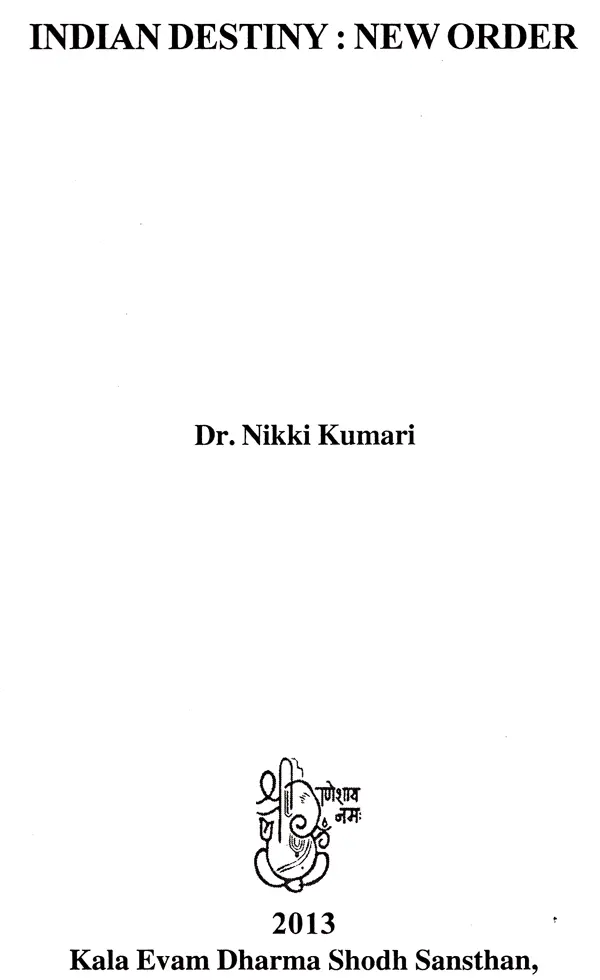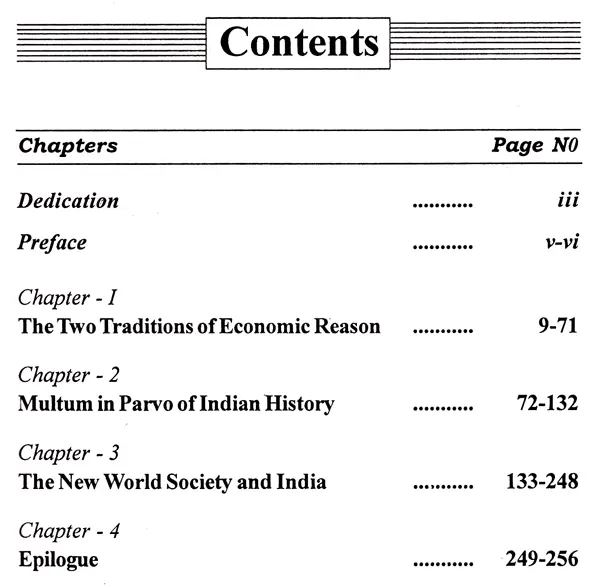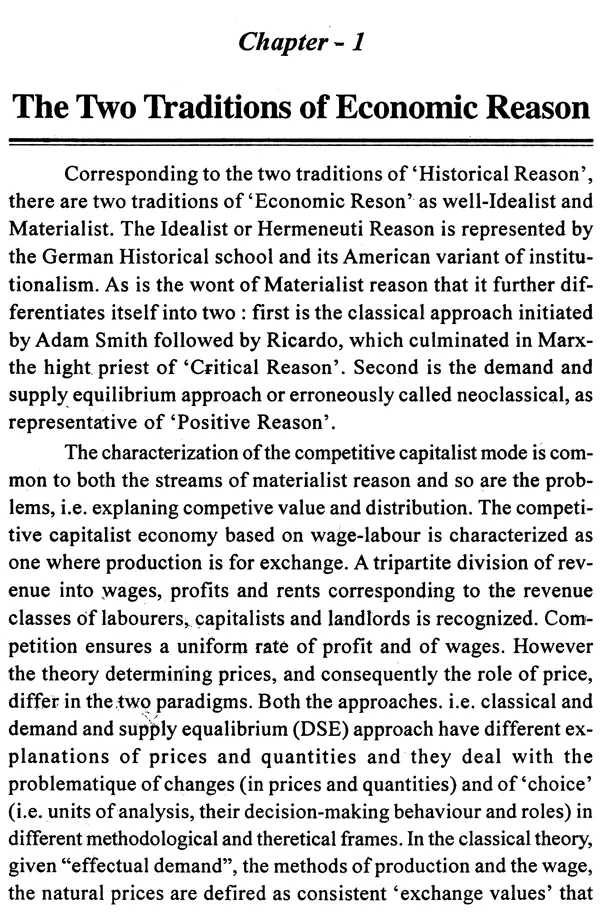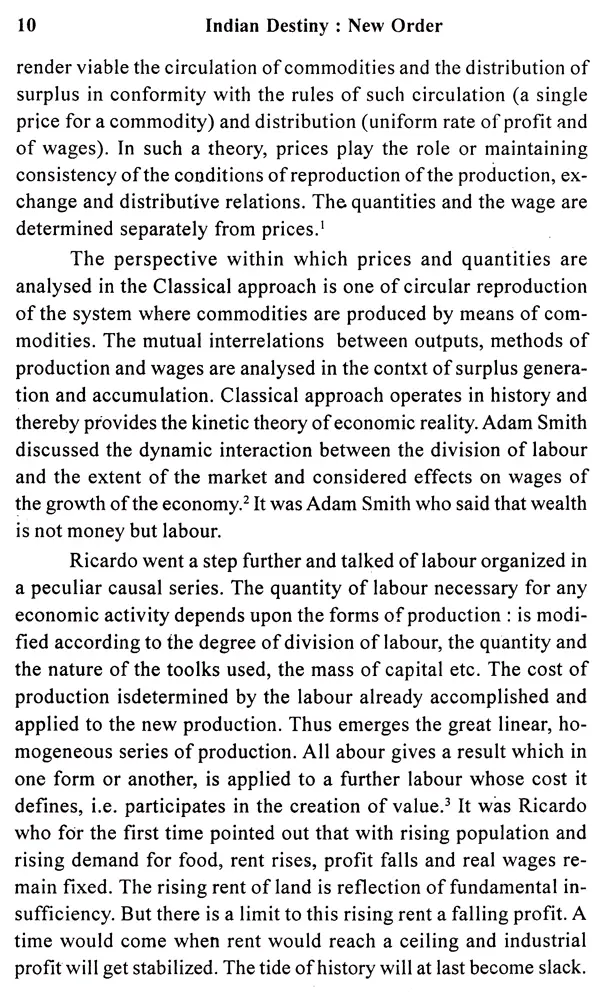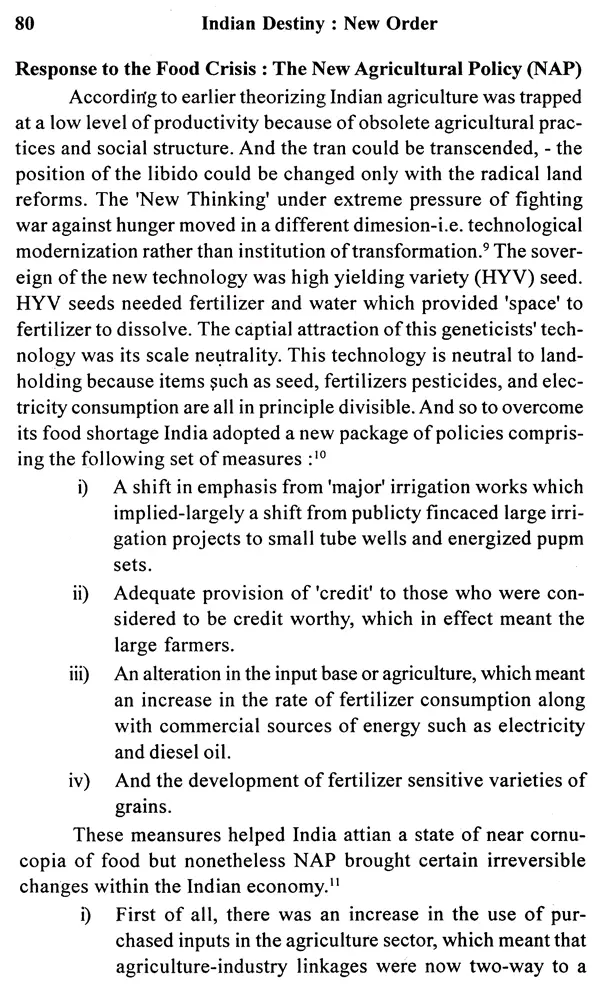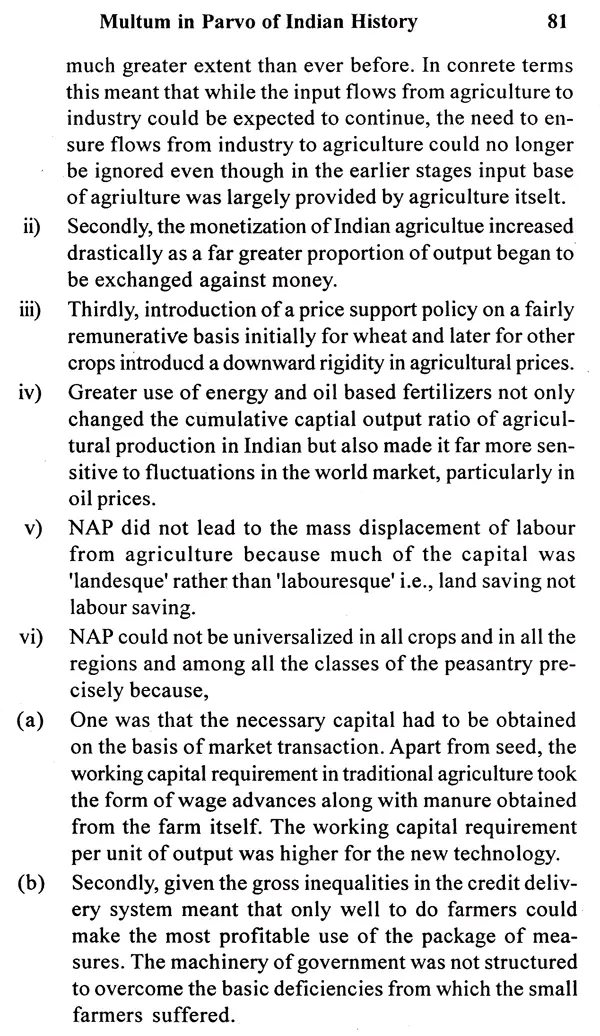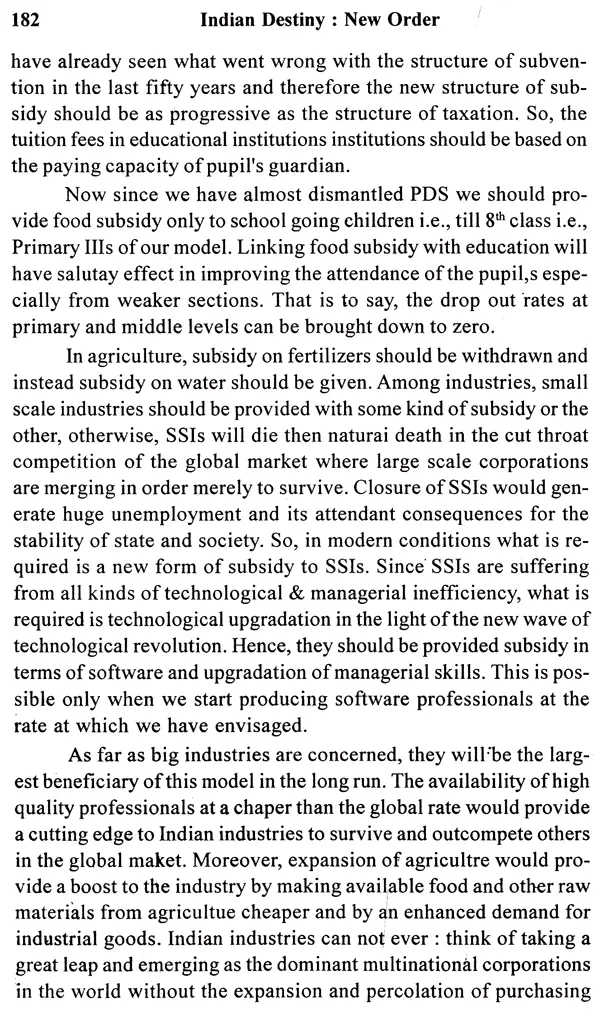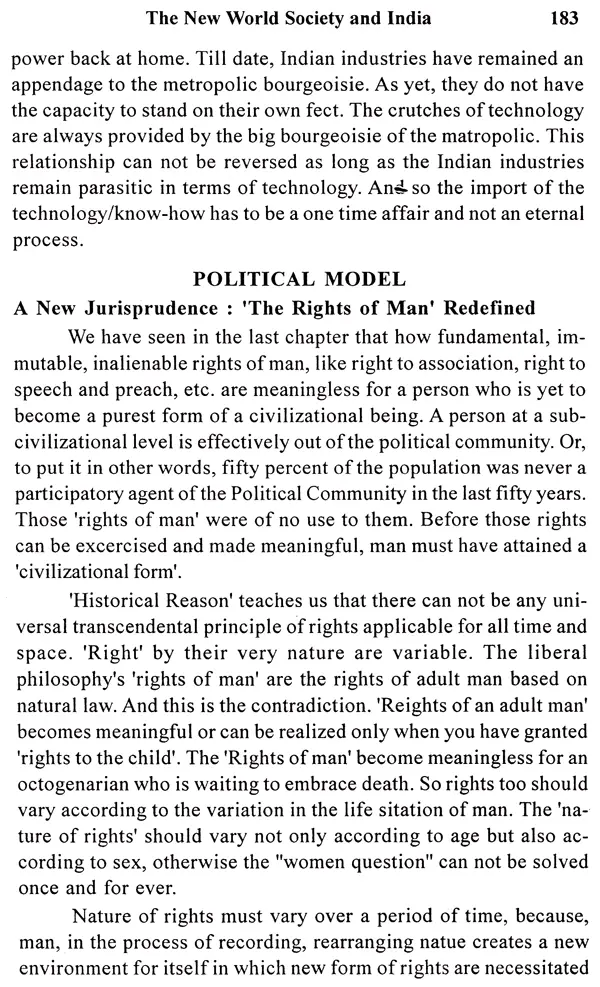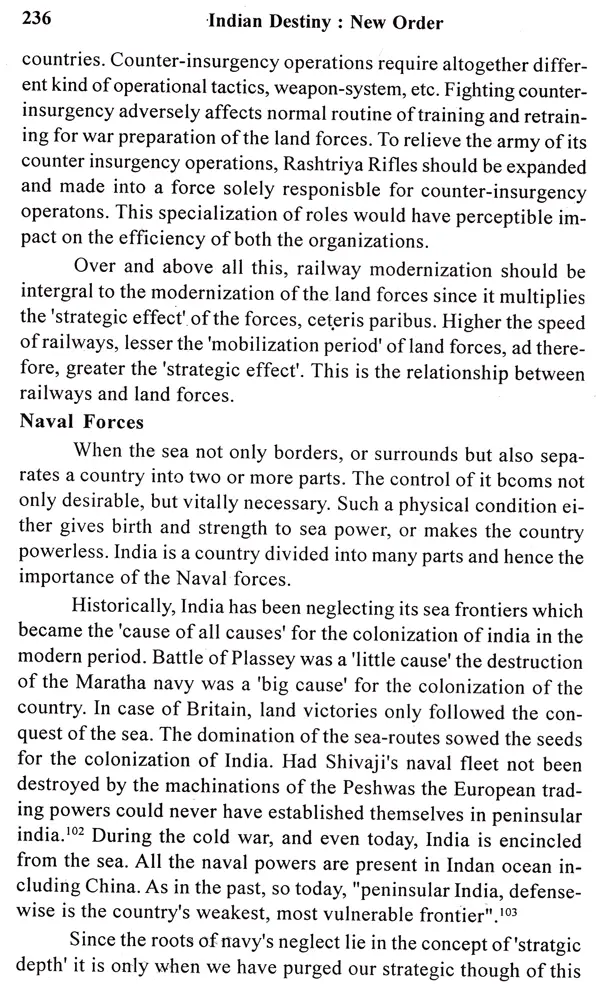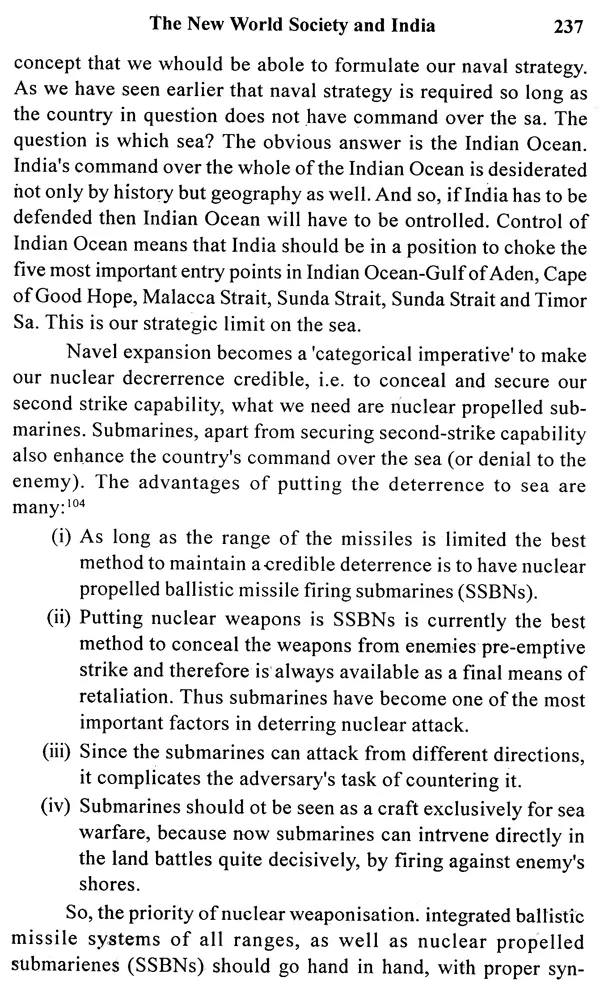
Indian Destiny - New Order
Book Specification
| Item Code: | UAE804 |
| Author: | Nikki Kumari |
| Publisher: | Kala Evam Dharma Shodh Sansthan, Varanasi |
| Language: | English |
| Edition: | 2013 |
| ISBN: | 9789381721254 |
| Pages: | 256 |
| Cover: | HARDCOVER |
| Other Details | 9.00 X 6.00 inch |
| Weight | 430 gm |
Book Description
The New paradigm visualizes the economy as an aggregate of atomistic sovereign individuals (producers and consumers) making their decisions autonomously, with no interference from the influence of externalities. Relative prices and quantities are determined simultaneously in equilibrium as an outcome of the inter-play of 'forces of demand and supply' generated by the optimizing behavior of individuals, subject to their resource constraints. Each producer, given the technological possibilities, chooses the profit-maximizing activities and outputs at the going prices. On the other hand, each consumer, given his budget constraints and scales of preferences, maximizes satisfaction at the going prices. It is through the operation of the 'fundamental' and 'universal' principle of substitution that individuals adjust their chosen quantities in response to variations in the parametrically given prices. The relative prices formed on the market vary in response to excess demands or supplies in particular markets in such a way as to clear all markets in equilibrium. The data for required determination of prices and quantity are the initial resource endowments and their distribution among individuals, the technological possibilities, and the system of preferences." Thus the optimum allocation of resources comes to be the central problem to be readdressed by economics.
People do not only enunciate momentary pleasure in order to have an assured pleasure at a later time, but they also refrain from present consumption and save in order to enjoy more wealth in future. In both the cases, waiting is central to the paradigm. In the domain of the economy, waiting is a factor of production and that the real costs of production are made up of efforts of the workers and sacrifices of the capitalists. The efforts are rewarded by wages and the sacrifices by profits.
**Contents and Sample Pages**
